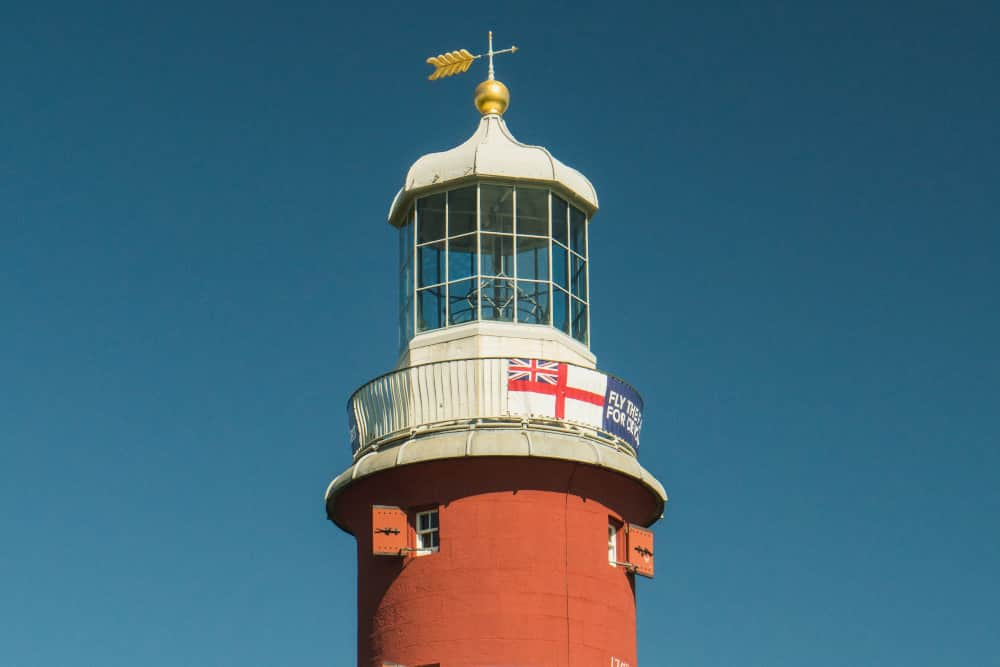Plymouth is a historic port city in the county of Devon, South West England, with a population of approximately 262,000. It has a near unrivalled maritime heritage, in fact, there are not too many historical sites that can boast the likes of Sir Walter Raleigh who named the State of Virginia after the Virgin Queen Elizabeth I. Here are a few of our favourite historic facts about Plymouth.
The Mayflower’s most famous voyage
The Mayflower set sail on 16th September 1620 from Plymouth to voyage to America for what would become the ships most famous journey. Its passengers were in search of a new life – some seeking religious freedom, others a fresh start in a different land. After a gruelling 66 days at sea under the command of Captain Christopher Jones (1570 – 1622), the passengers and crew set eyes on what is now known as Cape Cod. They were 200 miles from their intended landing spot when one of the main timbers on the 180 tonne ‘Mayflower’ started to break in the winter Atlantic Ocean. Luckily, they all reached land safely.
The voyage led to the signing of the ‘Mayflower Compact’ which was the first legal and governing document for the colony of Plymouth, the basis of what many believe to be the democratic system for the United States of America also the first ‘Thanksgiving’ celebrations.
Captain Cook set sail on his famous explorations
Plymouth is from where Captain Cook (1728 – 1779), one of England’s greatest explorers, set sail on each of his three voyages. Charting and mapping New Zealand and the East Coast of Australia which allowed for settlement 18 years later. Captain is celebrated as a national hero to this day, and you will find his statue located on the Mall in London.
Permission to fire Gun Salutes
There are only ten places in Britain which have permission to fire Gun Salutes and Plymouth’s Citadel is one of them. Plymouth played its part in gun salutes in tribute to Queen Elizabeth II and the proclamation of King Charles III.
The birthplace of Sir Robert Falcon Scott
Today, we rely on TV programmes to bring the beauty of the distant North and South poles into our homes, but this was not a luxury afforded to our ancestors. It is from Plymouth that another of England’s heroes, Sir Robert Falcon Scott (1868 – 1912) was born. Plymouth is also from where he led Britain’s first ever expedition to reach the South Pole. Scott’s statue can be seen today in Waterloo Place, London.
Home to Britain’s oldest gin distillery
During the 15th century, a Monastery was formed near to Plymouth harbour by a group of Blackfriars. It was on that site that in 1793 gin was first distilled, making it the oldest gin distillery in Britain.
It’s because of the nearby fresh clear water (now sourced from the local Moors), and the access to botanicals coming in from all over the world, that Plymouth Gin is one of Britain’s favourite tipples.
Gin is still distilled in the 1840 copper still.
In the days of sailing ships, the Royal Navy would only take Navy Strength Gin (57% proof) aboard their ships so that if it spilt it and ruined the gun powder, it would not be a problem as the gin was highly flammable in itself!
Did you know that in the 17th century, Dutch troops would drink the Dutch version of gin (Genever) before battle, to steady their nerves in the ensuing carnage. This is where we get the saying “Dutch Courage” from.
If you like Pimm’s you will certainly like Plymouth Fruit Cup, the distillery tours are very educational, informative, and entertaining. Plus, it is an easy commute from London.
The Fab Four’s famous photograph
In September 1967, the photographer David Redfern captured the Beatles on the beautiful Hoe Promenade (famous for its stunning scenic view) when he was covering the group as they called into Plymouth while they filmed The Magical Mystery Tour in the Westcountry.
If you are visiting London, and would like a guided tour with one of our knowledgeable guides, please do not hesitate to get in touch. We are able to custom your tour to suit your own interests, so if Plymouth is on your ‘must see’ list, we’ll make it happen.





